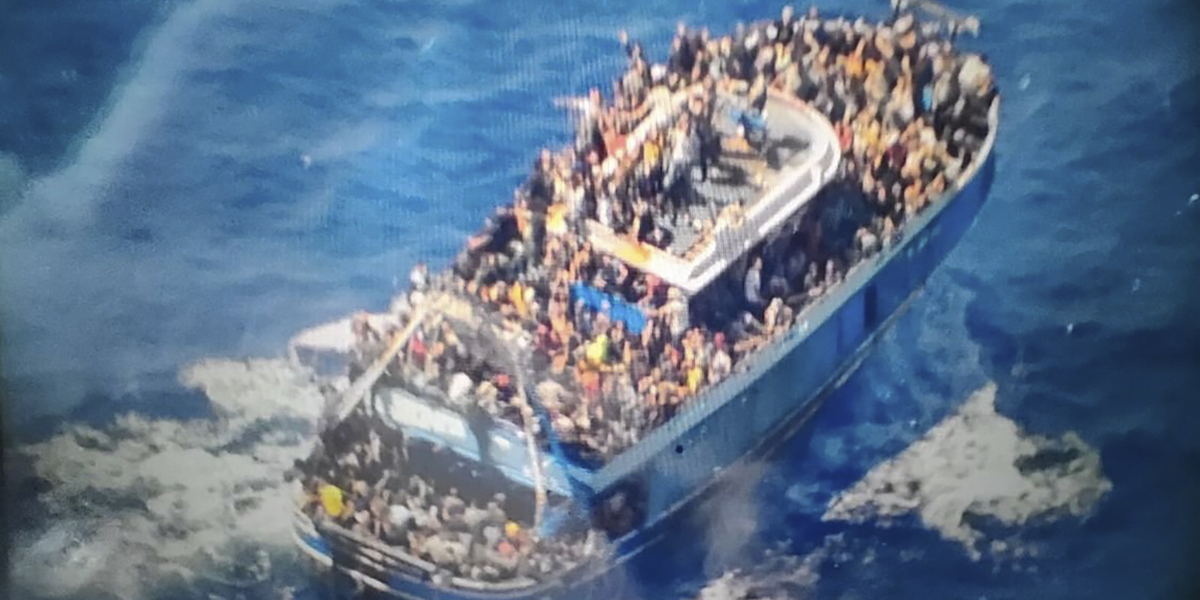Four migrants who survived the very serious shipwreck in the Peloponnese on June 14th they told a BBC News some moments both of the shipwreck and of the following days: if confirmed, their testimonies would corroborate the hypothesis not only of a role of the Greek Coast Guard in the shipwreck, but also of subsequent attempts to hide their responsibilities.
The four migrants were contacted by BBC News, which has not disclosed their names to protect them but which has verified their identities: some of them are still in the Malakasam migrant center, north of Athens, others were until recently. Speaking of the Greek Coast Guard, one of them in particular said: “We thought they were going to rescue us, but instead they sunk the boat.”
The four migrants refer to the risky operation that the Greek Coast Guard allegedly carried out to rescue the boat, towing it with a rope after the boat’s engine failed, a few hours before the shipwreck.
Confirming the version given in recent weeks by other survivors, one of them said that the Greek Coast Guard would have thrown a rope to one side of the fishing boat full of people and would have then started towing it towards the mainland going very fast: the boat would have started to totter, heel and list to right and left, then capsize and sink, killing most of those on board.
Throwing a rope and starting to tow a fishing boat loaded with migrants in the middle of the sea is an extremely risky operation: normally those who rescue the boats stop at a distance, so as not to cause waves that could compromise the balance of the boat – they are often boats very precarious, carrying many more people than the expected load – and then approaches in smaller boats, on which the rescued people are brought on.
In the face of the stories of the survivors about the throwing of the rope and the towing towards the mainland, the Greek Coast Guard had initially denied this version, claiming that the intervening vessel had kept at a “fair distance” from the former fishing vessel. Subsequently, the Greek port authorities had given a still different version, saying that a rope had actually been tied to the former fishing vessel, to check its conditions and attempt a tow, but the people on board would have untied it because they did not want to be taken to Greece and they wanted to continue the journey to Italy.
In addition to confirming the version of the rope and tow, the four survivors heard from BBC News they argued that the Greek authorities would then ask them not to talk to the media about how the coastguard would try to rescue the boat, and to “not blame the Greek coastguard” if they spoke to journalists anyway .
One of the survivors added that he had been pressured by some unidentified “Greek officials” to change his version of events, in exchange for financial aid and speeding up the procedures for obtaining asylum seeker status, a form of international protection provided for certain types of migrants.
Two other survivors later said that the Greek authorities would have asked them, through some interpreters and in the presence of some lawyers, to testify against nine Egyptian people who were on the vessel and who are currently accused of trafficking in human beings. Migrants listened to by BBC News they said the nine people in question – like many others who are accused of trafficking once they arrive at their destination – were actually passengers like themselves and had had no role in organizing the trip.
The shipwreck in the Peloponnese was one of the most serious in the recent history of the Mediterranean: it is estimated that there were around 750 people on board the vessel, mostly from Pakistan, Syria and Egypt. So far 82 bodies have been recovered and there are 104 survivors, in all probability therefore the death toll is much higher.
BBC News contacted the Greek authorities for comment on the testimonies of the four migrants interviewed, but the authorities replied that they could not comment because all the information in their possession is currently confidential as part of the ongoing investigation.
– Read also: Who are the so-called “smugglers”
